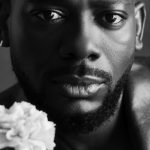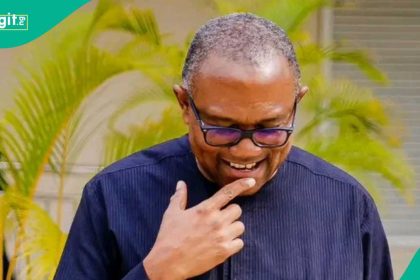The latest edition of The Toyin Falola Interviews aired on Sunday, drawing an impressive lineup of global historians who examined the intersection of women, slavery, and power under the theme, “Global Africa, Women, and Slavery.”
The intellectually charged episode centred on historian Toby Green’s new book, The Heretic of Cacheu: Struggles over Life in a 17th-Century West African Port. The discussion—moderated by Professor Ana Lucia Araujo of Howard University—brought together an international panel of renowned scholars including Hassoum Ceesay, the Gambian historian and Director of the National Centre for Arts and Culture; Mariana Candido, Winship Distinguished Research Professor of History at Emory University and author of Wealth, Land and Property in Angola: A History of Dispossession, Inequality and Power; José Lingna Nafafé, Associate Professor at the University of Bristol; and Dr. Robin Chapdelaine, Associate Director of the Center for African Studies at Stanford University.
From the outset, the conversation situated gender, trade, and power as key elements in the making of the Atlantic world, offering sharp insights into the economic and cultural agency African women wielded during the transatlantic slave trade.
Speaking from The Gambia, historian Hassoum Ceesay traced the layered, often paradoxical roles of women in the slave economy. “I am speaking from The Gambia,” he began. “This region is well noted for its role in the transatlantic slave trade and also in the ways that women were part and parcel of this trade.” He cited the Signares—Euro-African women of wealth and influence—as cultural brokers. “These were women of substance, of economic might and social standing. They were rich enough to have slaves, they kept slaves, and they also traded in slaves. Their role in the trade remains deeply disputed.”
Ceesay drew on vivid historical portraits. He recalled Fanda Lawrence, a Gambian widow of a British trader who continued slave trading after moving to Georgia in the 18th century—“a story that points to the conflicted role of women in the transatlantic slave trade.” He also invoked Phillis Wheatley, the enslaved poet from the Senegambian region who became a literary voice of resistance: “Wheatley rose above persecution to become a poet of note who received attention even from Thomas Jefferson.”
Drawing on Alex Haley’s Roots, Ceesay emphasized the role of women in preserving identity through ritual and memory. “Women like Kunta Kinte’s mother, Binta, who conducted naming ceremonies, embody the endurance of culture amidst historical trauma.”
For Professor Mariana Candido, the focus shifted to West Central Africa—particularly Angola, the Republic of Congo, and Gabon—which, she explained, was “the region most affected by the transatlantic slave trade in terms of both duration and volume.” According to her, “When talking about women in global slavery, it is inevitable to remind everyone that Central Africa lost the highest number of people to the trade. Roughly 36 percent of the 12.5 million Africans transported to the New World were women.”
Candido challenged popular assumptions that women were invisible in history. “I always heard that it was difficult to write about women, but in my research I found women everywhere—in travel reports, census data, church records, baptismal registers, and even in trading accounts. Women are not invisible in the archives; historians simply haven’t always looked for them.”
She further noted that “while men were taken in larger numbers, the women who remained behind filled crucial social and economic roles. Gender influenced the demand and supply of the trade and shaped the kinds of labour enslaved men and women performed.” Her forthcoming book, A History of Women in Angola (1500–1880), she revealed, builds on these findings and aligns with Green’s effort to “recognize the centrality of women in economic, social, and political life in Atlantic ports, which became women’s spaces of power.”
Anchoring the discussion, Professor Toyin Falola contextualized the historical conversation for global audiences. “If you go to the US, Brazil, or Cuba and find black populations there, it is tied to this history of slavery,” he said. “Millions were taken from Central and West Africa—from Cameroon, Nigeria, Angola, and beyond.”
Falola praised Toby Green’s work for reclaiming African women’s agency. “We are discussing this to emphasise the role of women. In classrooms, we call it agency—how people express themselves and find empowerment. Green shows us that African women were not simply victims; they were traders, political leaders, and brokers.”
He added that the book “reveals that the Atlantic world was not shaped by a single religion. Alongside Catholicism, African spiritual systems—dreams, rituals, and ancestral beliefs—coexisted and shaped everyday life.” For Falola, The Heretic of Cacheu stands as “a microhistory of one woman that illuminates the broader global history of Africa, slavery, and gender.”
Building on that, Professor José Lingna Nafafé expanded the lens to the broader Atlantic world, stressing that women “carried Africa’s philosophy, religion, and culture across the Atlantic.” He observed that “the Atlantic was saturated by women and young people who were not part of wars but were captured and enslaved nonetheless.” Women, he said, occupied domestic spaces that became “sites of knowledge transmission and resistance.”
“They worked in the homes of slave owners, cooked, cared for children, and overheard conversations about the systems that oppressed them,” he explained. “These women held the secret knowledge of the operation of enslavement and sometimes resisted from within that space.” Nafafé also discussed the Black Brotherhoods—Christian fraternities where “women were given spaces to trade, and the money they raised was often used to liberate others. They became liberators within an oppressive system.”
He concluded: “Women bore the double pain of being mothers—uprooted from their families while also giving birth to children who were enslaved. They were the primary bearers of trauma and, at the same time, of resistance.”
Framing the discussion within a global context, Dr. Robin Chapdelaine of Stanford University asserted that “the history of African women in slavery is foundational to understanding the making of the modern world.” “The term ‘Global Africa’ signals both geography and process—the ways Africa and Africans, especially women, shaped economic, spiritual, and intellectual worlds stretching from Senegambia to Bahia,” she said.
Chapdelaine noted that “women’s participation in trade networks tied African interior economies to Atlantic markets. Their labour—domestic, reproductive, agricultural, and commercial—sustained the circulation of goods, people, and ideas that defined the Atlantic and Indian Ocean worlds.” Yet, she added, “their autonomy was often recast as deviance, their knowledge as sorcery, their mobility as a moral threat.”
“To study women in slavery in a global frame,” she said, “is to reimagine freedom not as a European invention but as a contested African practice.”
For author Toby Green, the story that inspired The Heretic of Cacheu lies in the life of Krispina Perez, “the most powerful trader in the settlement of Cacheu in today’s Guinea-Bissau.” He explained: “This was a rare Inquisition trial from 1665 involving a West African woman. Perez was part of the elite trading class, and her influence was so significant that it drew the attention of the Inquisition—something that almost never happened in Africa.”
Green emphasized that the trial documents revealed “the emotional world underlying commerce—envy, bitterness, love, fear, anxiety, and debt—all shaping historical experience.” He added: “The book is unusual because it captures the 17th century—a transformative period that set the stage for the industrialisation of global slavery.”
Sunday’s discussion reinforced the intellectual mission of The Toyin Falola Interviews—to connect Africa’s past with its global future through deep scholarly dialogue. By spotlighting women’s overlooked roles in shaping Atlantic history, the episode underscored Falola’s vision of an Africa that continues to speak powerfully to the world, reclaiming its stories, scholars, and the silenced. The event was broadcast across various television, radio, and digital platforms.
ALSO READ TOP STORIES FROM NIGERIAN TRIBUNE
WATCH TOP VIDEOS FROM NIGERIAN TRIBUNE TV











![Nigerians play politics of power – New INEC Chairman Amupitan’s old interview resurfaces [VIDEO] Nigerians play politics of power – New INEC Chairman Amupitan’s old interview resurfaces [VIDEO]](https://informationhub.com.ng/wp-content/uploads/2025/10/Joash-Ojo-Amupitan-420x280.jpg)

